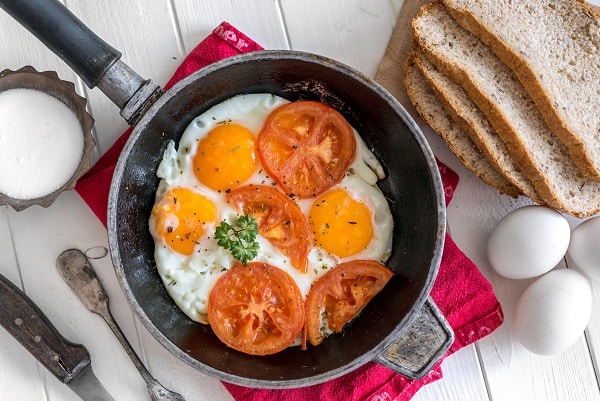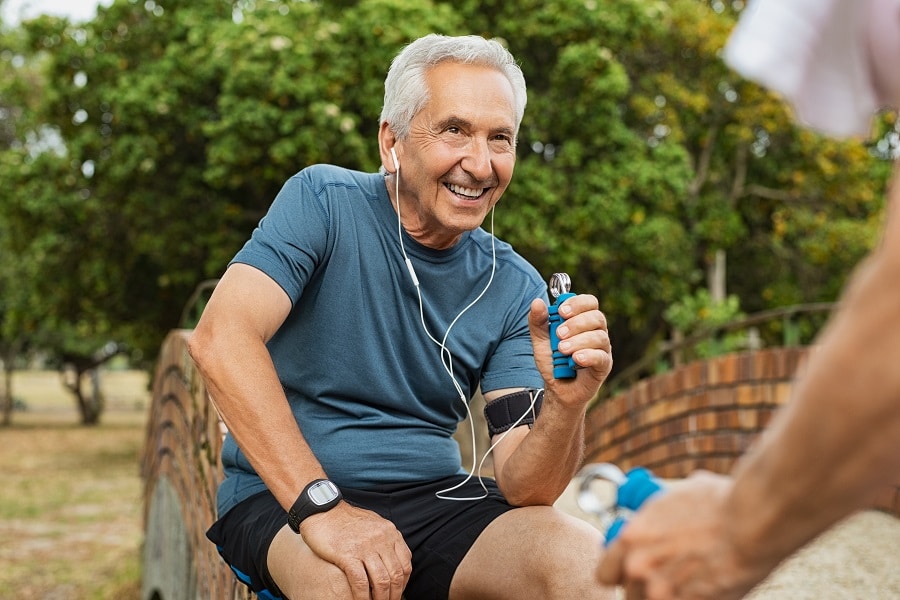Deciding when to eat in relation to a workout is a common dilemma faced by fitness enthusiasts and athletes alike. The timing of your meals can influence your energy levels, performance, and recovery. While some swear by a pre-workout snack, others believe in the power of post-exercise nutrition. This article delves into the science and benefits of both approaches, helping you make an informed decision on whether you should eat before or after a workout.
Contents
- The Science Behind Eating And Exercising
- Benefits Of Eating Before A Workout
- Potential Drawbacks Of Eating Before A Workout
- What To Eat Before A Workout
- Benefits Of Eating After A Workout
- Potential Drawbacks Of Delaying Post-Workout Meals
- What To Eat After A Workout
- Individual Variability And Listening to Your Body
- Special Considerations
- Find The Perfect Timing For Your Workout Nutrition!
- Related
The Science Behind Eating And Exercising

Your body primarily uses food as a source of energy. When you consume food, especially carbohydrates, your body breaks it down into glucose. This glucose is then stored in the liver and muscles as glycogen. During physical activity, the body taps into these glycogen reserves to fuel the muscles and maintain energy levels. The intensity and duration of the workout can determine how much glycogen is used. For short, high-intensity workouts, glycogen is the primary energy source. However, for longer, low-intensity activities, the body might also use stored fat as fuel.
Understanding this energy mechanism is crucial when deciding when to eat. Consuming food before a workout ensures that glycogen stores are topped up, potentially leading to improved performance. On the other hand, eating after a workout can help replenish these stores, aiding in quicker recovery.
Benefits Of Eating Before A Workout

Eating before a workout can offer several advantages. Firstly, it provides the necessary energy to power through the exercise, especially if it’s been a while since your last meal. This can prevent symptoms of low blood sugar, such as dizziness, fatigue, and weakness, which can hinder performance. Additionally, having a pre-workout meal or snack can improve endurance, allowing you to exercise longer and with more intensity.
Another significant benefit is the preservation of muscle mass. When you exercise on an empty stomach, especially during prolonged or high-intensity workouts, there’s a risk that the body might start breaking down muscle protein for energy. Consuming a balanced meal or snack before such workouts can provide the body with an alternative energy source, thus preserving muscle tissue.
Potential Drawbacks Of Eating Before A Workout

While there are clear benefits to eating before exercising, there are also potential drawbacks to consider. One of the most common issues is stomach discomfort. Exercising immediately after a meal can lead to cramps, nausea, or even vomiting, especially during high-intensity or jarring activities. It’s essential to give the body ample time to digest, which is why many experts recommend waiting at least an hour after a meal before working out.
Another potential issue is feeling sluggish or heavy during the workout. If the pre-workout meal is too rich or large, it can make you feel lethargic, impacting your performance. This is why the composition and size of the pre-workout meal or snack are crucial. It’s generally advised to opt for easily digestible foods that provide quick energy, like simple carbohydrates, and to avoid heavy, fatty, or very fibrous foods.
What To Eat Before A Workout

When planning a pre-workout meal or snack, the primary goal is to provide the body with easily accessible energy. Carbohydrates are the body’s preferred energy source, especially for high-intensity workouts. Simple carbs, like fruits or a slice of white bread, can offer quick energy without weighing you down. However, it’s also essential to include a moderate amount of protein. Protein can help prepare the muscles for the strain of the workout and reduce the amount of muscle protein breakdown.
While carbohydrates and protein are crucial, limiting fats and overly fibrous foods is advisable before a workout. Fats take longer to digest, leading to a heavy feeling in the stomach. Similarly, while fiber is an essential part of a balanced diet, consuming too much right before a workout can cause digestive discomfort.
Benefits Of Eating After A Workout

Post-workout nutrition is often termed the “recovery window,” and for good reason. After a strenuous workout, the body is in a catabolic state, meaning it’s breaking down muscle protein. Eating after exercise can halt this process and initiate recovery. One of the primary benefits of a post-workout meal is the replenishment of glycogen stores. Glycogen is the primary fuel used during exercise, and replenishing it ensures that the body is prepared for the next workout session.
Additionally, consuming protein after a workout can significantly aid in muscle recovery. Exercise causes tiny tears in the muscle fibers. Protein provides the necessary amino acids to repair and rebuild these fibers, making them stronger. This process is crucial for muscle growth and strength gains. Therefore, a post-workout meal that combines both carbohydrates and protein can significantly enhance recovery and results.
Potential Drawbacks Of Delaying Post-Workout Meals

While the benefits of post-workout nutrition are clear, delaying this crucial meal or snack can have drawbacks. One of the primary concerns is hindered recovery. As mentioned earlier, the body is in a catabolic state post-exercise. Delaying nutrition can prolong this state, leading to increased muscle soreness and reduced readiness for subsequent workouts.
Another potential issue is excessive hunger. After a workout, the body has expended a significant amount of energy. If you don’t refuel soon after, you might find yourself ravenous later on, leading to overeating or making less nutritious food choices. Moreover, prolonged delays in post-workout nutrition can increase the risk of muscle loss, especially if the body starts tapping into muscle protein for energy.
What To Eat After A Workout

The ideal post-workout meal or snack should address both energy replenishment and muscle recovery. For energy, carbohydrates are key. Options like rice, potatoes, quinoa, or fruits can quickly restore glycogen levels. When it comes to muscle recovery, protein takes center stage. Lean meats, dairy products, eggs, or plant-based proteins like tofu and legumes are excellent choices.
Hydration post-workout is equally crucial. Exercise leads to fluid loss through sweat, and it’s essential to replace these lost fluids to aid in recovery and maintain optimal body function. While water is a great choice, those who engage in prolonged or very intense workouts might benefit from electrolyte-replenishing drinks to restore lost salts and minerals.
Individual Variability And Listening to Your Body

It’s essential to understand that while general guidelines can be helpful, everyone’s body reacts differently to food and exercise. Factors such as metabolism, age, gender, fitness level, and even genetic makeup can influence how one feels when eating before or after a workout. For some, a pre-workout meal might be energizing, while for others, it could lead to discomfort. This individual variability underscores the importance of trial and error.
Listening to one’s body is paramount. Paying attention to hunger cues, energy levels, and how one feels during and after a workout can provide valuable insights. Over time, this self-awareness can guide individuals to tailor their nutrition strategies to best support their fitness goals and overall well-being.
Special Considerations

Certain populations might need to approach workout nutrition with added care. Athletes or those undergoing intensive training regimes have increased nutritional demands. Their pre and post-workout meals might need to be more substantial and carefully timed to support performance and recovery.
People with medical conditions, such as diabetes, need to monitor blood sugar levels and ensure they’re consuming appropriate foods at the right times to prevent spikes or drops. Lastly, individuals’ goals, whether weight loss or muscle gain, can influence their nutritional choices around workouts. For instance, someone aiming for muscle gain might prioritize protein intake post-workout more than someone whose primary goal is weight loss.
Find The Perfect Timing For Your Workout Nutrition!
The debate around eating before or after a workout doesn’t have a one-size-fits-all answer. While science provides guidelines, individual preferences, and needs play a significant role. The key is to experiment, listen to one’s body, and make informed choices that support both immediate workout performance and long-term health goals. Whether you’re an athlete, a casual gym-goer, or someone just starting their fitness journey, understanding and optimizing your workout nutrition can significantly enhance your results and overall well-being.


